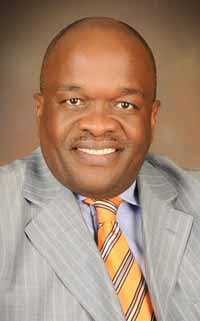As we look at ourselves on the continent of Africa we must continue the search for our soul in a quagmire of underachievement and a difficult era beckoning for better solutions.
Commentators repeatedly sing the elegy of a continent so rich, and yet so poor, facing an unprecedented challenge in Covid-19.
While lamenting the missed opportunities and the desperate need to, as one article specified, repurpose and reimagine and reopen African societies, businesses, developmental institutions and governments, theirs is a sanguine commentary on the sanguinary consequences of colonisation.
They highlight the irony of Africa’s poverty in the midst of plenty, which is partly a consequence of what they see as poor management.
In a mild rejoinder, I would like to argue that leadership precedes management, because leadership defines the purpose and aligns a strategy of achieving the set goals and allocates resources accordingly. Leadership, attuned leadership, is guided by its ethics and virtues but has self-agency and makes choices informed by their own communities’ felt needs.
As in the case of an individual needing to accept that they are the agent of their own thoughts, actions and consequences, states and governments need a sense of agency to achieve successful governance that fulfils their national goals. They also need to feel in command of their lives.
Former president Thabo Mbeki’s African Renaissance was premised on resuscitating a continent so comatosed by colonialist subjugation such that they are not only strangers to their own heritage but are reduced by a centuries old dissociative episode — a form of out-of-body experience spoken of by neuroscientists.
The essence of his theme was a call to African leaders to acknowledge the complexity of Africa’s desperate situation and take a long-term view, abandoning the tunnel vision that focuses on one thing at the exclusion of the other complex issues that require strategic and careful thinking. Revisit the values that drive their conduct. Hold each other accountable. We should not only focus on the ravaged land, we should question the socialisation and educational system that produce such disaffected leadership that seem to have no vision, no interest in self-respect and the dignity of such a rich heritage. We should find a way of engendering an ethos of attuned leadership.
The case for Africa is captured in American novelist Jonathan Safran Foer’s seminal comment when he says, “If we do not generate it ourselves, our identity is at the mercy of strangers”.
Over an extended period of time we can accurately enumerate how endowed the continent is with natural resources but our consciousness never captures a basic truth, the real wealth of a nation is its people. When you contrast the economic success of a country like Japan with the economically challenged country like the Congo, a country endowed with exceptional natural resources, you realise that indeed the real wealth of a nation is its people.
In Martin Luther King Jr’s words, when taking responsibility for our sense of worth we should not be asking if it is safe, like cowards, or if it is politic, like expediency or popular like vanity. Rather, we should ask an ethical question from conscience: is it right?
The real issue in Africa is socialisation and the greatest institutions involved in this are educational institutions. Perhaps the clearest comment ever rendered on the subject of the necessary transformational leadership was made by WEB du Bois in 1903 when he said: “Now the training of (human beings) is a difficult and intricate task. Its technique is a matter for educational experts, but its object is for the vision of seers. If we make money the object of training … we shall develop money-makers but not necessarily (human beings); if we make technical skill the object of education, we may possess artisans but not, in nature, (human beings). (Human beings) we shall have only as we make (person)hood the object of the work of the schools; intelligence, broad sympathy, knowledge of the world that was and is, and of the relation of (humans) to it — this is the curriculum of that higher education which must underlie true life. On this foundation we may build bread-winning, skill of hand and quickness of brain, with never a fear lest the child and man (and woman) mistake the means of living for the object of life.”
Therefore, if Africa is to occupy its rightful place in history it must recognise complexity not only confined at the level of systems but also at the level of man, mind and morality.
Perhaps more than anything else in the world, we must question the reimagining of our institutions and their capacity and relevance at this current stage of history
Institutions of socialisation such as educational institutions should be full of ideas and not just facts, which result in a backward orientation and the stunting of lateral thinking. If imagination is the preview of life’s coming attractions, as Albert Einstein suggested, then Africa is least represented in the wellsprings of origination not only in terms of the now so famous fourth industrial revolution but also from the imagining and influencing what is to come.
A destroyed self-agency feeds through regurgitation and promotes outward compliance but destroys inward conviction and that is the state we find ourselves in.
Is it ethical to socialise individuals and impart knowledge that has long past its sell-by date? On a specific note is it in our developmental interests to fill the universities with knowledge we cannot reference to our felt needs.
We cannot re-imagine until we believe that we are valued and our professions are only expressions of our purpose and we also can add value in ways that may not be defined by other continents.
Thinking from cause to effect would put us at the perennial wellsprings of origination and remove us from the mainstream of penury.




